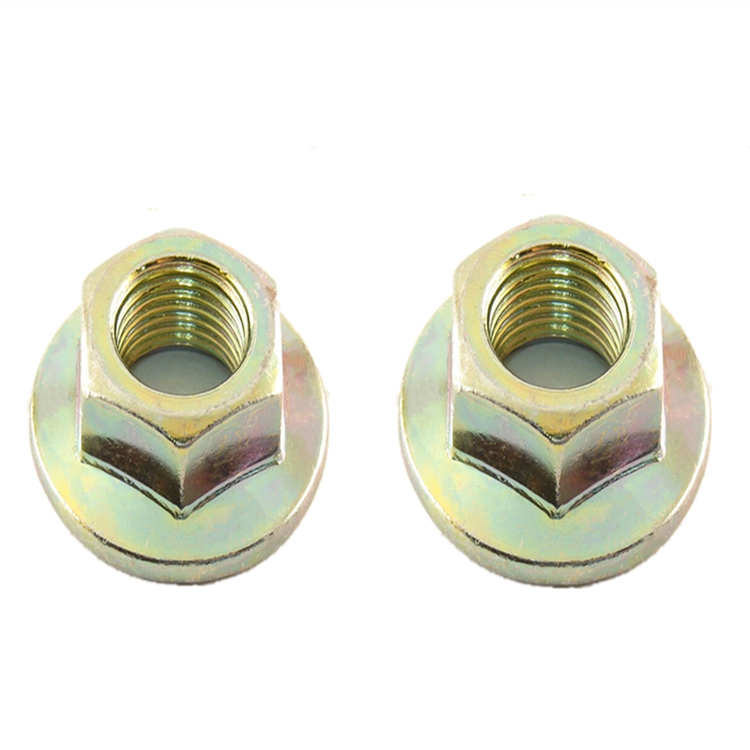High-Quality Wind Lock Washers Manufacturing for Enhanced Performance and Reliability in Various Applications
Aug . 09, 2024 05:15 Back to list
High-Quality Wind Lock Washers Manufacturing for Enhanced Performance and Reliability in Various Applications
The Importance of Wind Lock Washers in Modern Manufacturing
In today's fast-paced manufacturing environment, the efficiency and reliability of mechanical assemblies are paramount. Among the multitude of fastening solutions, wind lock washers have emerged as a crucial component. These specialized washers, designed to tackle the challenges posed by vibrations and environmental factors, are particularly relevant for industries ranging from automotive to aerospace.
Understanding Wind Lock Washers
Wind lock washers are a type of locking washer that provides enhanced gripping power to prevent bolts and screws from loosening due to vibration or dynamic loads. They are engineered with unique shapes, such as spiral or toothed configurations, which create friction and mechanical interlocks when installed. This prevents the fastening elements from losing tension and ensures the integrity of the assembly in challenging conditions.
The construction of wind lock washers typically involves high-strength materials such as stainless steel, which offers corrosion resistance, or high-carbon steel, known for its durability. This enhances their performance in various environmental settings, from maritime applications exposed to saltwater to heavy machinery operating in dusty, abrasive conditions.
Applications Across Industries
The versatility of wind lock washers makes them invaluable across a wide range of industries. In the automotive sector, they are commonly used in engine assemblies, suspensions, and wheel applications, where consistent performance is critical. Any loosening of fasteners in these areas could lead to catastrophic failures, resulting in safety hazards and costly repairs.
In the aerospace industry, where weight reduction and reliability are critical, wind lock washers are essential in securing components on aircraft. The intense vibrations experienced during flight demand highly capable fastening solutions that can withstand significant forces without failure. Similarly, in the renewable energy sector, wind lock washers play a vital role in securing turbines, which face extreme environmental stresses.
wind lock washers factory

Manufacturing Processes and Quality Assurance
The production of wind lock washers involves precision engineering to ensure they meet the necessary performance standards. Modern manufacturing techniques, such as computer numerical control (CNC) machining and advanced stamping, allow for intricate designs that optimize the locking mechanisms.
Quality assurance is another critical aspect of the production process. Each batch of wind lock washers undergoes rigorous testing, including tensile strength assessments and vibration resistance evaluations. This is vital to ensure that every washer performs reliably under the expected loads and environmental conditions.
Moreover, as industries increasingly focus on sustainability, manufacturers of wind lock washers are adopting eco-friendly practices. This includes utilizing recycled materials and minimizing waste in production processes. Such initiatives not only contribute to environmental conservation but also meet the growing demand for sustainable products in the marketplace.
Conclusion
As mechanical assemblies continue to evolve, the role of wind lock washers in enhancing reliability and safety cannot be overstated. They represent a small yet mighty component in a vast array of applications, underscoring the significance of precision engineering in modern manufacturing. Whether in the automotive, aerospace, or renewable energy sectors, wind lock washers provide an essential solution to prevent failures caused by loosening fasteners.
In the face of constant innovation, the demand for high-quality wind lock washers will only continue to grow. Manufacturers must remain vigilant in their production processes, ensuring that these vital components are readily available to meet the needs of various industries. As we move towards a future reliant on advanced technologies and sustainable practices, wind lock washers will undoubtedly play a critical role in the pursuit of greater efficiency and reliability in mechanical systems worldwide.
Latest news
-
Top Wire Bolts Suppliers - Quality & Durable Fasteners
NewsAug.15,2025
-
Trusted Wire Bolts Company | Quality Fasteners Supplier
NewsAug.14,2025
-
Reliable Wire Bolts Suppliers & Manufacturers for Global Needs
NewsAug.13,2025
-
High-Quality Bolts for Lawn Mower Handle Supplier
NewsAug.12,2025
-
Leading Phosphated Drywall Screws Supplier | Bulk & Custom Orders
NewsAug.11,2025
-
Top Wire Bolts Company: Manufacturers, Exporters & Suppliers
NewsAug.10,2025
